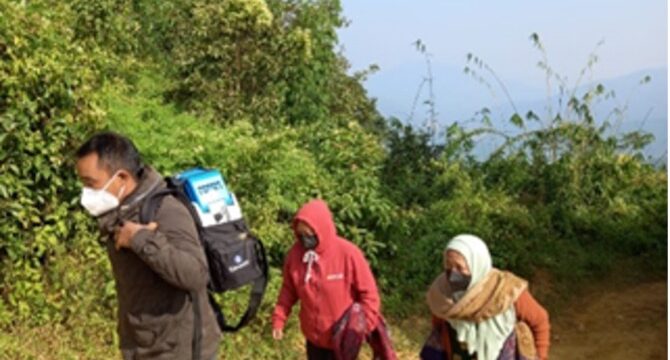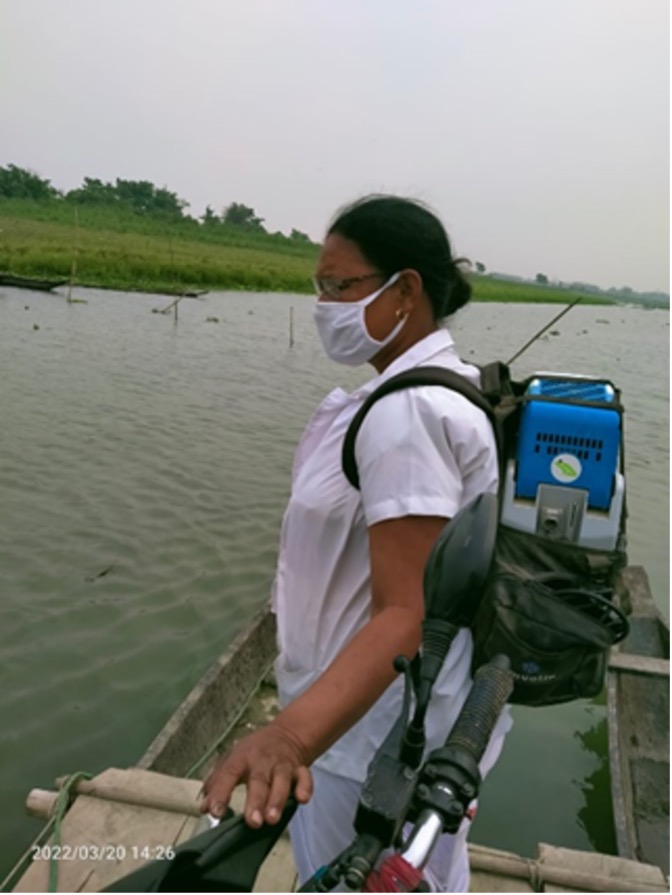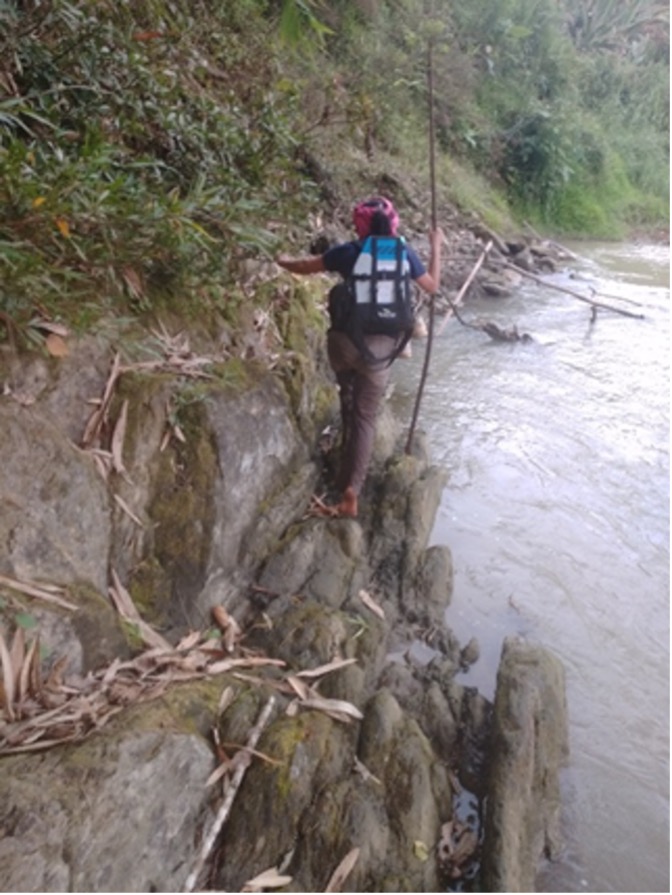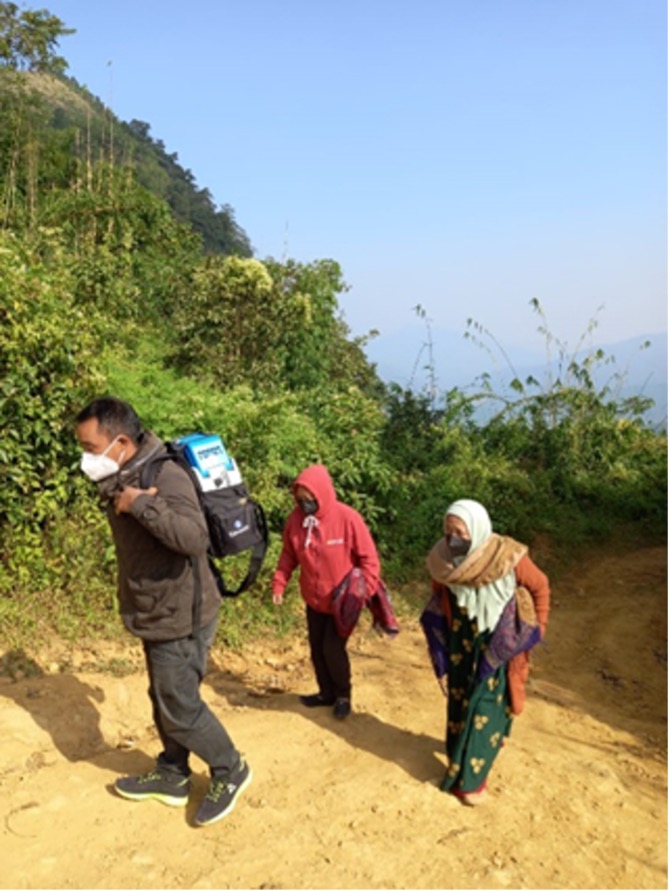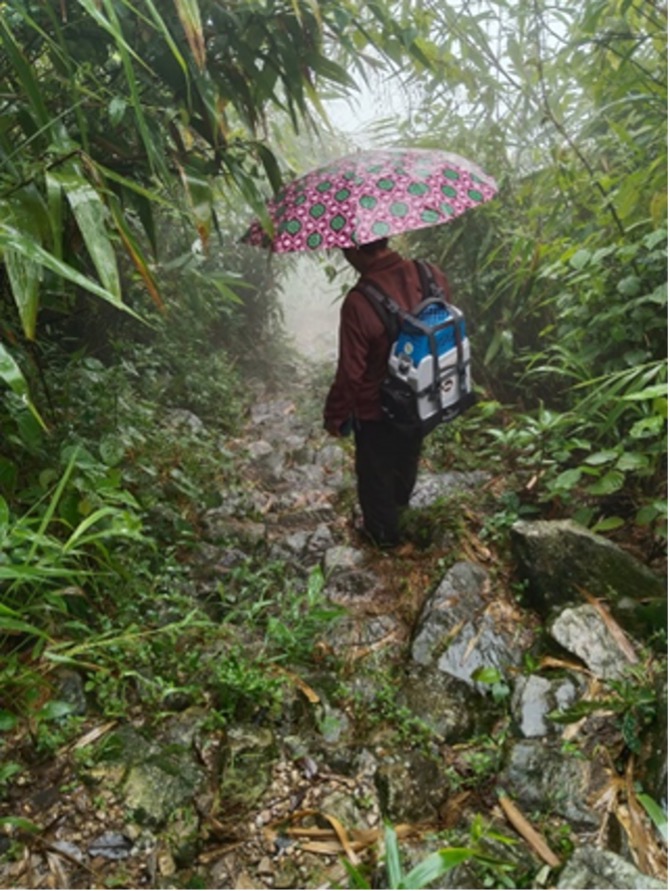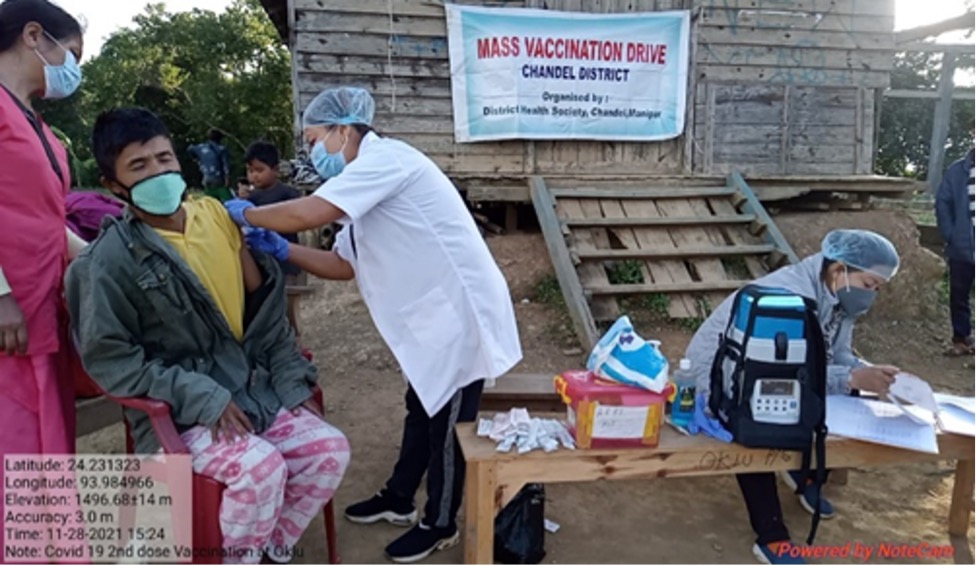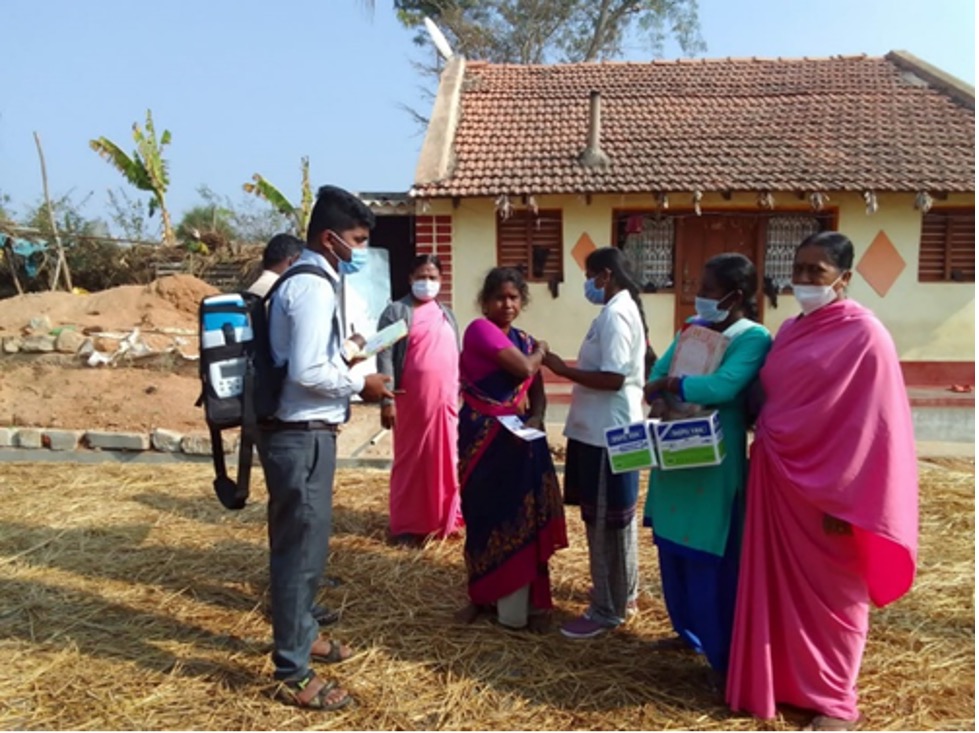This project developed and deployed a portable medical-grade refrigerator that can maintain any pre-set temperature for over 15 hours through its battery powered by a 100 W solar panel. This product (“Emvolio”) has been effectively deployed in remote regions with intermittent power supply. It has helped keep primary health centres operational and maintain the cold chain for medicine supplies during extreme weather events (e.g., during the floods in Assam between 2020-2023). The product is currently deployed in 14 states in India, and the deployment of 100 units has commenced in Kenya.
The underlying refrigeration mechanism is solid-state cooling, which ensures accurate temperature control without the danger of harmful refrigerant leaks or cross-contamination. Additionally, it includes a portable solar unit, increasing cooling capacity and promoting renewable, sustainable energy use.
PATH India facilitated the designing and field testing of the product. The following stakeholders were involved during deployment: hospitals (Government and private); non-profit healthcare and livelihood organizations (SELCO Foundation, CINI, TATA Trusts, and Venture Center); the National Health Mission; and Indian state health departments.
After deployment, the team conducted on-site training sessions, familiarising health care workers with the need for precise temperature control in vaccine distribution, correct cold-chain handling, and the role of data monitoring for enhancing vaccine supply chains. Additionally, regular assessments were conducted to gauge the device performance, community acceptability, and its impact on the system in comparison to traditional ice-based vaccine carriers.
Major funding sources for the projects included grants from the Government of India (DBT BIRAC, Govt of India) and USAID, and impact investments (Venture Center, Social Alpha, Qualcomm, Manipal Foundation). The developer of the technology, Blackfrog, has been able to mobilize more than USD $700,000 in grants and investments.



